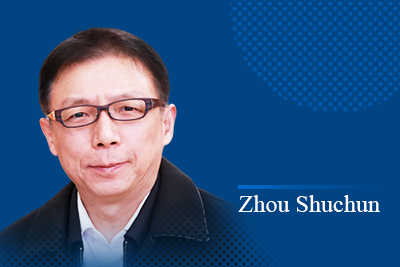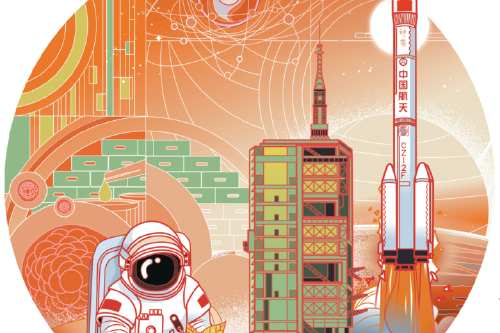Changing consumer habits end e-shopping era
Once a nationwide carnival, the biannual e-commerce festivals have now become almost silent. The scenes of families gathered before their "shopping carts", creating astronomical sales figures the moment the clock struck midnight, have faded. But this is actually a positive sign, not something to lament.
European leaders' bias in Israel-Iran conflict disturbing
European leaders, who like to tout a rules-based global order and seemingly promote strategic autonomy, have been caught on the wrong side after Israel and the United States launched unprovoked "pre-emptive" strikes on Iran's nuclear facilities.
Nursing services optional or compulsory? A question
A notice released by the National Health Commission recently has sparked a heated debate among the public. The notice said the government is launching a pilot project that offers hospitalized patients the option of relying on nurses and professional workers rather than family members for round-the-clock care.
US should reflect on its flawed tariff policies
We need to see other actors in the US stand up and communicate to the American people that his policy is flawed, a false diagnosis and harmful to the US.
Washington's tariffs threat to Global South
UNHCR, the UN Refugee Agency, is approaching the trade talks have brought a silver lining for world trade. It's time for the US administration to get back on the right track.
Global cooperation in a changing world
The foundations of the modern global rules-based order were laid 80 years ago with the defeat of fascism and the establishment of the United Nations. The intention was to establish the framework for resolving conflict and fostering development.
LA chaos reflects US' deep-rooted divisions
The ongoing protests in Los Angeles against the deportation of undocumented immigrants have captured the world's attention largely due to the powerful and emotional images widely circulating on social media.
China-Central Asia collaboration a necessity
Over the past two decades, Central Asia has maintained an average real annual growth rate of 6.7 percent, compared with the average of 5.3 percent for developing countries and 2.6 percent for the world.
China-US ties, global order should be based on rules
The future of relations between the United States and China in 2025 feels like a sea of uncertainty. One would either need boundless optimism or complete detachment to feel entirely confident about where things are heading. With Donald Trump's return to the presidency, the global order stands at a crossroads, teetering on the brink of significant instability. His campaign was full of sweeping pronouncements on major global issues — trade, technology, climate and industrial policy — but it lacked the coherence of a clear plan. His idea of imposing tariffs on Chinese goods, for example, signals a strong "America First" attitude but leaves much to interpretation.
A century's journey proves China's choice
Today, under the leadership of the CPC, China has regained its position as a global leader.
Brazil and China cement a durable bond for the 21st century
There are many synergies between Brazil and China, particularly related to the New Growth Acceleration Program, specifically in energy and transportation, in which Chinese companies have achieved a high level of expertise.
US tariffs gross violation of WTO rules
After landmark rulings by the US Court of International Trade, the US administration's rollout of "reciprocal tariffs" now faces a critical test. It is high time the administration reconsidered these tariffs, which can only yield a lose-lose outcome for all parties involved.
Encouraging youth to achieve their dreams
Editor's note: Over the past years, China's socioeconomic situation has undergone significant transformation. Faced with challenges and opportunities, the Chinese government has been making concerted efforts to promote social development and high-quality growth. Three experts share their views on the issue with China Daily.
Damage control
As countries around the world accelerate their strategic technological deployments, traditional global geopolitics are shifting toward "techno-politics". That is, with the unprecedented rise in the role of technology and under the logic of international political competition, the organizational structures and behavioral patterns of nations, as well as the means and content of major power competition, are undergoing significant changes. Technological factors have become core variables in economic competition, national security and even ideological confrontation.
Central Asia, China eyeing a better future
The second China-Central Asia Summit, which concluded in Astana on June 17-during the pomegranate blossom season — was especially important because the Kazakhstan capital is where President Xi Jinping proposed the Silk Road Economic Belt, which together with the 21st Century Maritime Silk Road makes up the Belt and Road Initiative, in 2013.
G20 should help address common global challenges
The existing global economic governance system is faltering against the growing tide of trade protectionism and unilateralism.
Bandung continues to show the way
This year marks the 70th anniversary of the Bandung Conference, the first international meeting of leaders from Asian and African nations.





























